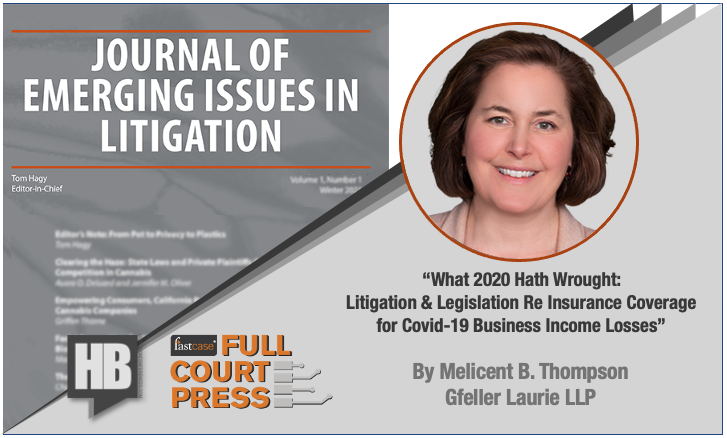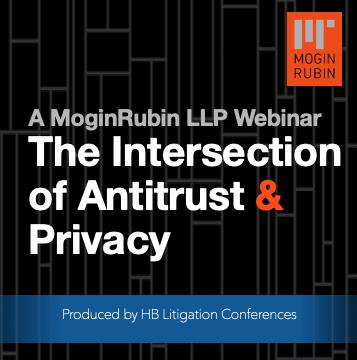Melicent B. Thompson on COVID-19 Coverage
Abstract
COVID-19 indisputably has taken an enormous economic toll. Governmental shutdown orders early in the pandemic and ongoing restrictions on business’ operations have resulted in a flood of claims for insurance coverage for business income losses attributable to those orders and restrictions. This article reviews the litigation and legislative developments directed at attempting to find insurance coverage for such losses and the reasons why those efforts have been unsuccessful for the most part.
Author
Melicent B. Thompson (mthompson@gllawgroup.com) is a Partner with the law firm Gfeller Laurie, LLP, in West Hartford, Connecticut. She thanks her fellow Gfeller Laurie, LLP attorneys who contributed to this article. Melicent has close to 25 years of experience in litigation and corporate counseling. She actively practices in Connecticut and Georgia courts in insurance coverage, business disputes, professional liability claims, defense of educational and financial institutions and general liability. Her insurance coverage practice encompasses all areas of first and third party claims and related litigation services, including declaratory judgment actions, defense of bad faith claims and reinsurance matters. Melicent has substantial appellate court experience, having briefed and argued appeals before the Second Circuit Court of Appeals and the Connecticut Supreme and Appellate Courts. Her pro bono work includes serving as General Counsel to the Board of Directors of Gifts of Love, a charity providing basic needs to the working poor, based in Avon, Connecticut. She also serves as a member of the Advisory Council of Bay Path University (Longmeadow, Massachusetts).
About
The Journal on Emerging Issues in Litigation is a co-production of HB, Fastcase, and Law Street Media. You can also hear the complementary (and complimentary) Emerging Litigation Podcast wherever podcasts appear. For questions, contact Tom Hagy, Editor in Chief, at Editor@LitigationConferences.com.


